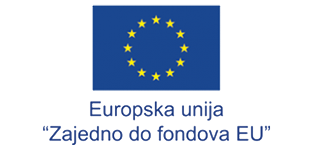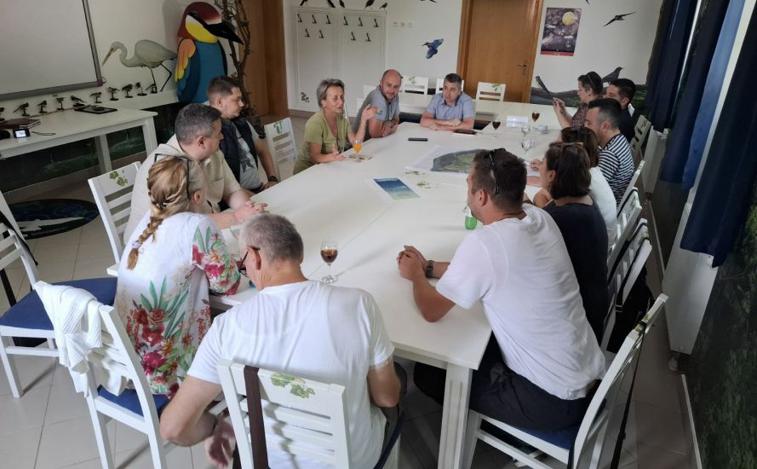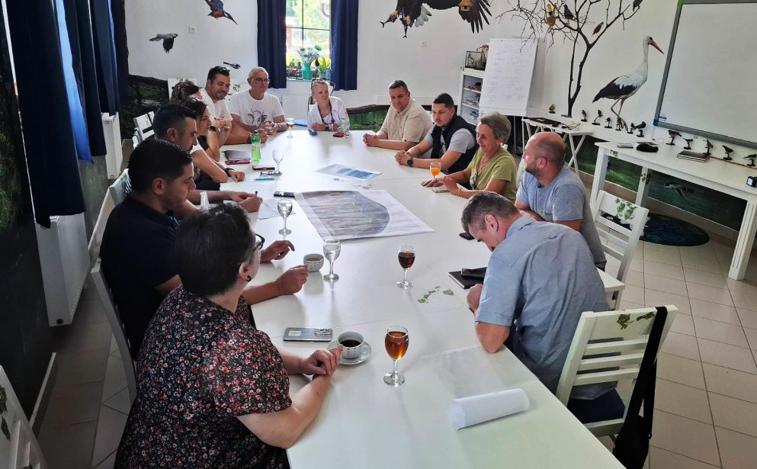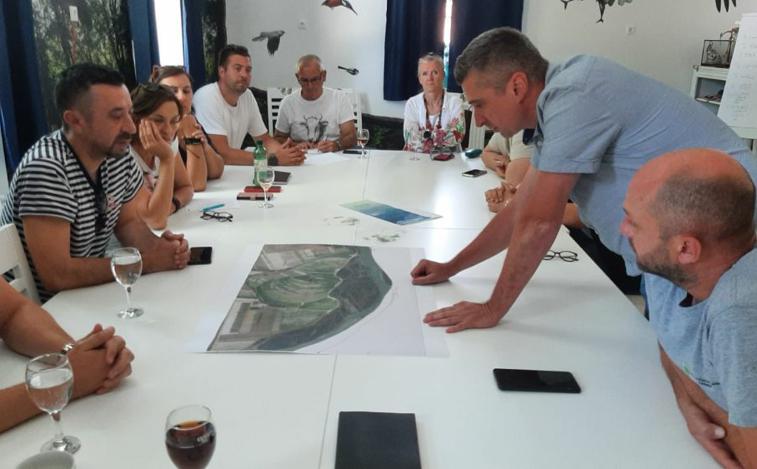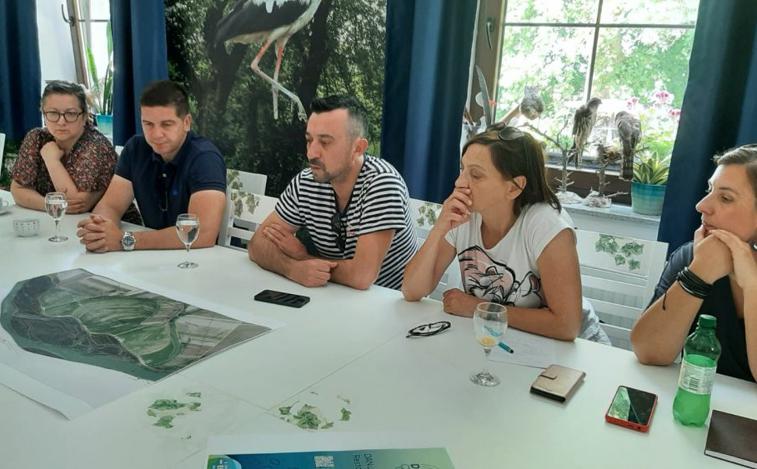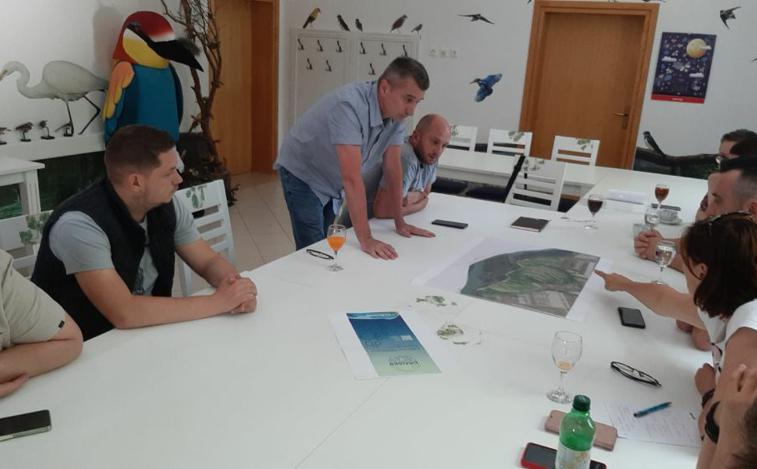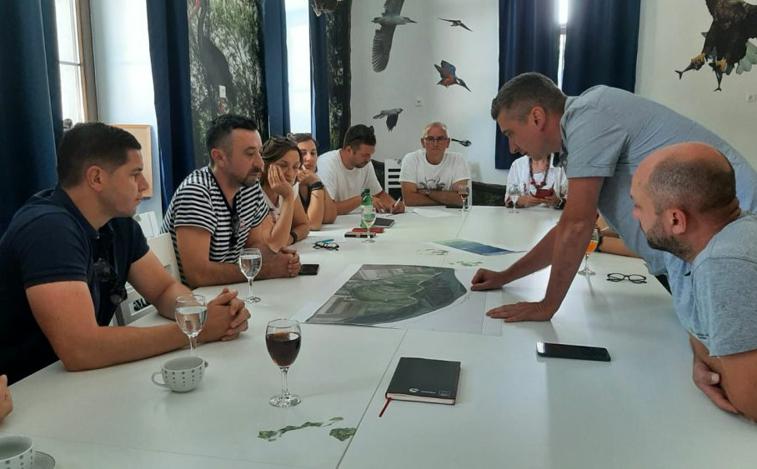Yesterday, June 12, 2025, a working meeting of project partners and local stakeholders was held at the Visitor Center The Drava Story as part of the implementation of the project Danube Sediment Restoration: Towards the Deployment and Upscaling of Sustainable Management of Sediments Across the Danube Catchment Basin (DANSER).
The meeting was attended by representatives of Hrvatske vode (Croatian Waters), the Faculty of Mining, Geology and Petroleum Engineering of the University of Zagreb, the company Gekom – Geophysical and Environmental Modelling Ltd., the Faculty of Agrobiotechnical Sciences in Osijek, the Department of Geology at the Faculty of Science, University of Zagreb, the Public Institution for Nature of Virovitica-Podravina County, and Croatian Forests Ltd., Forest Administration Slatina.
The project aims to improve the flow and quality of sediments within the Danube River Basin. Croatian Waters are responsible for preparing technical documentation, conducting environmental impact assessments, and carrying out restoration works on the Drava River side arm near the village of Novi Gradac in the municipality of Gradina, Virovitica-Podravina County. The Faculty of Mining, Geology and Petroleum Engineering is conducting sediment research, while the Faculty of Agrobiotechnical Sciences is focusing on research of fish populations.
The meeting was organized to present project activities to representatives of the Public Institution for Nature of Virovitica-Podravina County, who participate in the project as associated partners, and to representatives of Croatian Forests, which manage the forest resources in the DANSER project implementation area.
The project is funded by the Horizon Europe Framework Programme and the EU Mission: Restore our Ocean and Waters, which aims to protect and restore marine and freshwater ecosystems and biodiversity.
Croatian Waters, the Faculty of Mining, Geology and Petroleum Engineering, and the Faculty of Agrobiotechnical Sciences Osijek are among 35 partners from 7 countries—Austria, Bulgaria, Croatia, Ireland, Portugal, Romania, and Ukraine—participating in the project. The total project value is €8,677,782.63, and it will be implemented over a period of four years.
